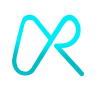In the dynamic landscape of today’s business world, the significance of internet marketing cannot be overstated. With consumers increasingly turning to digital platforms, businesses find themselves navigating the expansive realms of Facebook and Google, two titans dominating the digital advertising space. This presents a challenging dichotomy for enterprises seeking to maximize their online presence and marketing effectiveness.
As businesses contemplate where to invest their advertising resources, the choice between Facebook and Google becomes a pivotal decision. Each platform possesses unique strengths, catering to diverse marketing needs. The following exploration delves into the distinct advantages of Facebook and Google, shedding light on the factors that can guide businesses in making an informed choice for their digital marketing strategies.
Facebook: Targeted Social Engagement
A. Audience Targeting
Facebook, with its expansive user base, offers advertisers unparalleled access to detailed demographic targeting options. Advertisers can precisely tailor their campaigns based on user demographics, ensuring messages reach the most relevant audience. Leveraging user interests and behavior further refines targeting, optimizing the impact of marketing efforts. Recent statistics underscore the effectiveness of such targeted campaigns, revealing a significant increase in engagement within specific customer segments.
B. Visual Appeal and Creativity
The visual-centric nature of Facebook sets it apart in the digital marketing arena. Emphasizing visual content, such as compelling images and engaging videos, proves to be a powerful strategy. Businesses that invest in creative and visually appealing ads witness heightened engagement rates. Current statistics on Facebook underline the platform’s receptiveness to visually engaging content, making it a dynamic space for brands to showcase their creativity and connect with their audience.
C. Cost-Effective Advertising
Facebook’s advertising options extend beyond reach, making it an economical choice for businesses. The platform provides a cost-effective avenue with the potential for high returns on investment. This affordability, when compared to traditional advertising costs, positions Facebook as a strategic choice for businesses looking to optimize their marketing budget.
Google: Search Engine Dominance
A. Keyword Targeting and SEO
Google’s dominance in the search engine realm is a pivotal factor for businesses. Understanding and leveraging keyword targeting, coupled with effective search engine optimization (SEO), are essential for businesses aiming to appear in relevant search results. Case studies highlighting successful SEO strategies underscore the importance of aligning with Google’s search algorithms for enhanced online visibility.
B. Google Ads: Pay-Per-Click Advertising
Google Ads, with its pay-per-click model, provides advertisers with unmatched flexibility and control. The platform allows businesses to target specific keywords, ensuring ads reach users actively searching for relevant information. Statistics showcasing the effectiveness of Google Ads campaigns validate its value in reaching a targeted and engaged audience.
C. Comprehensive Analytics and Data Insights
Google Analytics emerges as a cornerstone for businesses seeking in-depth performance tracking. The platform’s robust analytics tools enable businesses to gather valuable data and refine their marketing strategies. Real-world examples abound, demonstrating how businesses leverage Google Analytics insights to make informed decisions and enhance their online presence.
Making the Decision: Facebook or Google?
Navigating the decision-making process involves a careful consideration of business goals and the target audience. While Facebook and Google each offer distinct advantages, a synergistic approach can often yield optimal results. Case studies spotlighting successful businesses that seamlessly integrate both platforms showcase the potential of a comprehensive and balanced marketing strategy.
FAQs
For small businesses, the cost-effectiveness of advertising depends on various factors, including the target audience, industry, and marketing goals. Both Facebook and Google offer cost-effective options, and the choice should align with the specific needs of the business.
Measuring campaign success involves tracking key performance indicators (KPIs) such as clicks, conversions, and engagement. Analytics tools provided by both platforms, including Facebook Insights and Google Analytics, offer comprehensive insights into campaign performance.
Absolutely. In fact, a multi-platform approach can be highly effective. By strategically utilizing both Facebook and Google, businesses can diversify their reach and engage different audience segments, maximizing the impact of their marketing efforts.
Certain industries may find one platform more advantageous based on user demographics and behavior. Understanding the nuances of the target audience and industry dynamics is crucial for making an informed choice.
Common pitfalls include neglecting audience targeting, overlooking the importance of compelling visuals, and insufficiently monitoring analytics. Mitigating these risks involves a proactive approach, continuous optimization, and staying abreast of platform updates.
Conclusion
In conclusion, the digital marketing landscape is a complex terrain where Facebook and Google stand out as pillars of opportunity. Each platform, with its unique strengths, caters to different aspects of the consumer journey. Whether businesses prioritize targeted social engagement on Facebook or capitalize on Google’s search engine dominance, the key lies in strategic alignment with specific goals.
As we at MYSense reflect on this exploration, we encourage businesses to embrace a holistic approach. By leveraging the strengths of both Facebook and Google, a comprehensive marketing strategy emerges—one that not only captures diverse audiences but also optimizes resources for enhanced results. It’s time for businesses to delve into the vast potential of these platforms, refining their internet marketing strategies to resonate with their audience and drive increased sales. The digital realm awaits, and with a thoughtful and integrated approach, success is within reach.





































